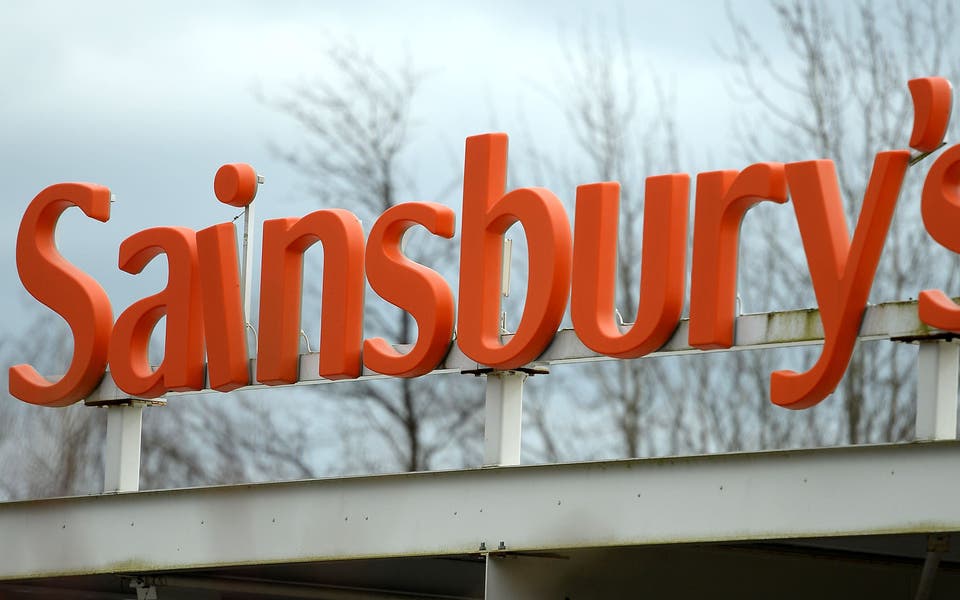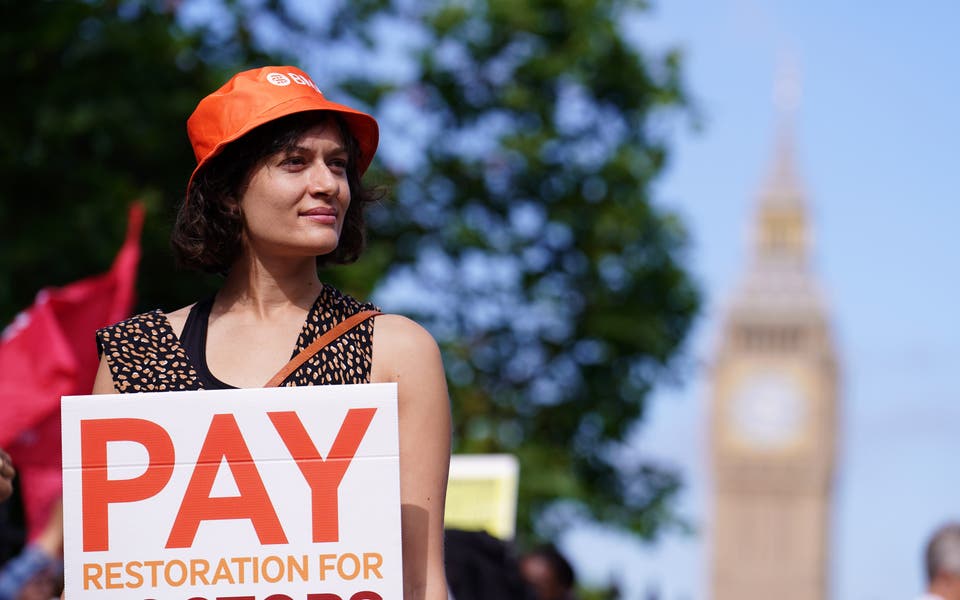High street retailers facing shareholder pressure over low pay
Major high street retailers are facing pressure from shareholder activists to pay all workers the minimum earnings necessary to meet the cost of living.
ShareAction, which campaigns for responsible investment, said it plans to attend the annual general meetings (AGMs) of Marks & Spencer, JD Sports and Sainsbury’s this week to challenge the company boards on low wages.
The campaign group will warn the three firms about how poor pay can cause reputational and long-term risks.
The Government’s legal living wage is currently £11.44 an hour as of April, but the Living Wage Foundation calculates the “real Living Wage” as £12 an hour nationally and £13.15 in London, which employers can voluntarily pay staff.
Marks & Spencer will face questions at their shareholder meeting on Tuesday about why it has not yet committed to paying its third-party contracted staff, such as cleaners and security guards, the real Living Wage despite profits of 480 million dollars (£380 million) in the last year.
ShareAction is also calling for the supermarket to commit to paying all of its staff the higher wage on an ongoing basis.
Later in the week, the activists will also challenge the boards of JD Sports and Sainsbury’s to pay the real Living Wage to all staff, during their AGMs on Thursday.
They will also urge Sainsbury’s, which recorded a profit of £277 million in the last financial year, to ensure its third-party contracted staff who keep stores clean and safe are paid the real Living Wage.
It comes as Simon Roberts, the supermarket’s chief executive, is set to receive nearly £5 million in pay this year, which is 212 times the amount its average employee will earn, according to the High Pay Centre.
Read More
Dan Howard, head of good work at ShareAction, said: “Inadequate pay is a widespread issue in the retail sector, leaving many workers struggling to make ends meet, and with all sorts of negative knock on effects on businesses from high turnover rates to low productivity.
“It’s in these businesses’ interests to pay their staff a real Living Wage, which allows workers to afford the basic goods and services they need, from housing to food to bills.
“Crucially, we need to see companies accrediting as Living Wage Employers, which means they commit to paying all their staff a real Living Wage, including third-party contractors, now and into the future.”
The campaign group also attended the shareholder meetings of other major retailers earlier this year as part of its Living Wage campaign for high street workers, including Tesco, Greggs, Next and B&Q owner Kingfisher.
This year we made our biggest ever investment in retail pay – £89 million – to at least £12 per hour, in line with the real Living Wage, as well as investing in improved maternity and paternity policies
M&S spokesperson
Catherine Howarth, chief executive at ShareAction, said: “The cost-of-living crisis has made it clear that pay inequality and in-work poverty are a blight on our society and urgently need tackling.
“Businesses paying the real Living Wage is vital to protect living standards for low-paid workers and serves the long-term interests of businesses, investors, and society.
“This is why we are calling on investors to use their influence as shareholders to steward companies in the right direction and ensure all workers receive the real Living Wage.”
Sainsbury’s said it pays colleagues the real Living Wage nationally and in London, adding that the vast majority of third-party contractors who work in stores, depots, contact centres and store support centres are already paid at or above the wage.
An M&S spokesperson said: “This year we made our biggest ever investment in retail pay – £89 million – to at least £12 per hour, in line with the real Living Wage, as well as investing in improved maternity and paternity policies as part of our broader reward package.
“Since March 2022 we have increased our standard hourly rate by more than 26% – significantly ahead of inflation.
“Our third-party contractors, as separate businesses, set their rates independently but they must comply with our ethical standards.
“We continue to have constructive, active dialogue with ShareAction and wider stakeholders, most importantly our colleague representative network BIG, with the feedback we are given informing the decisions we make on pay.”



